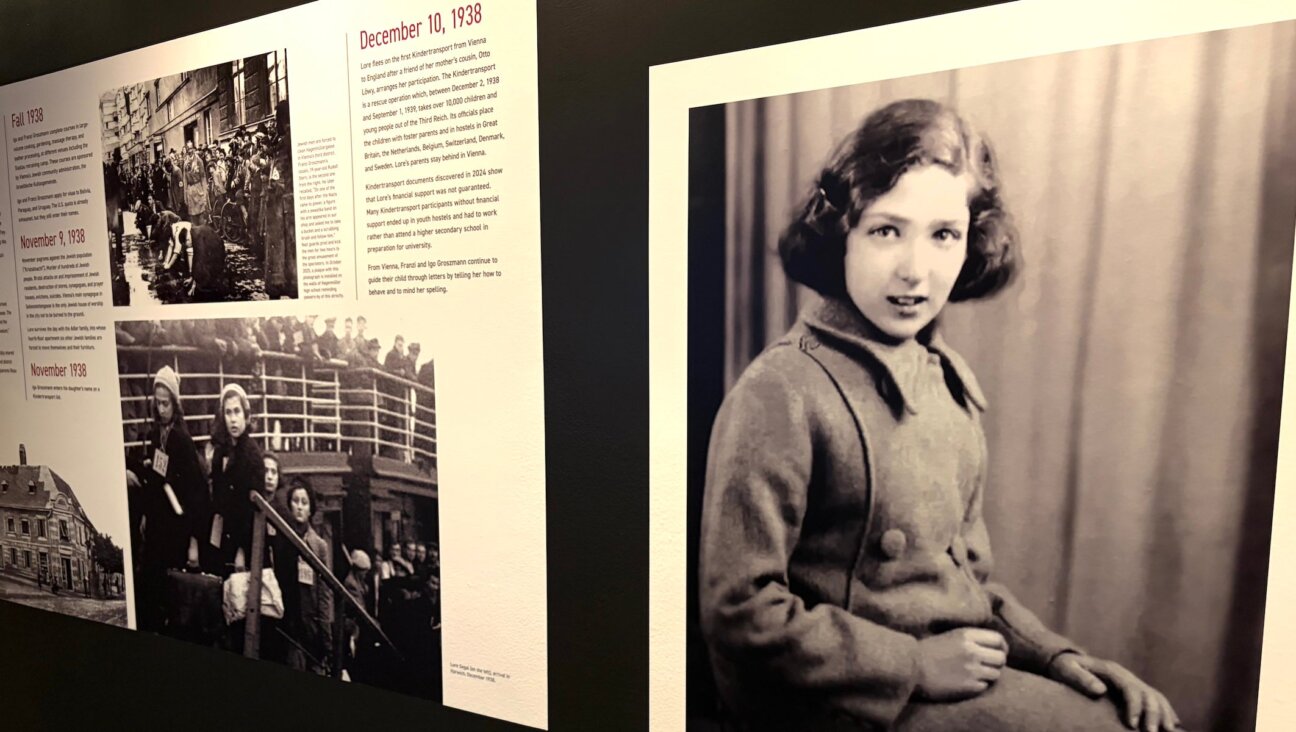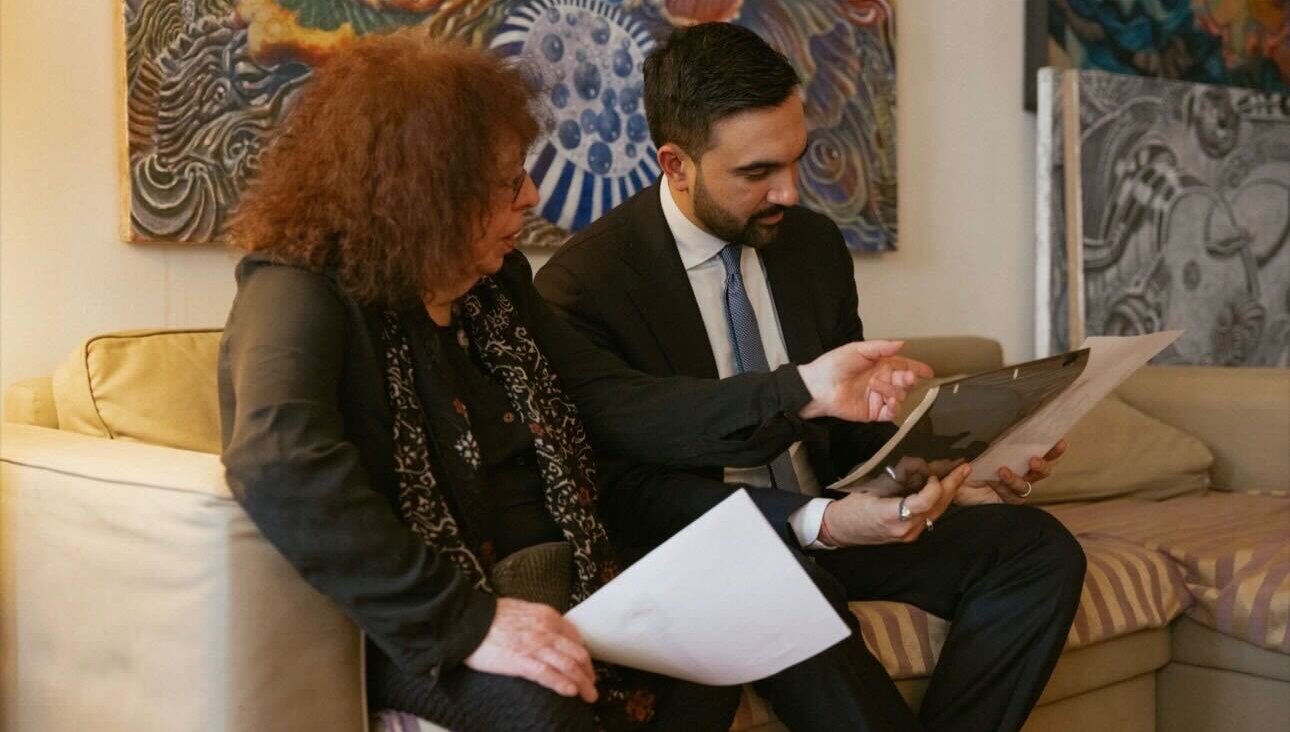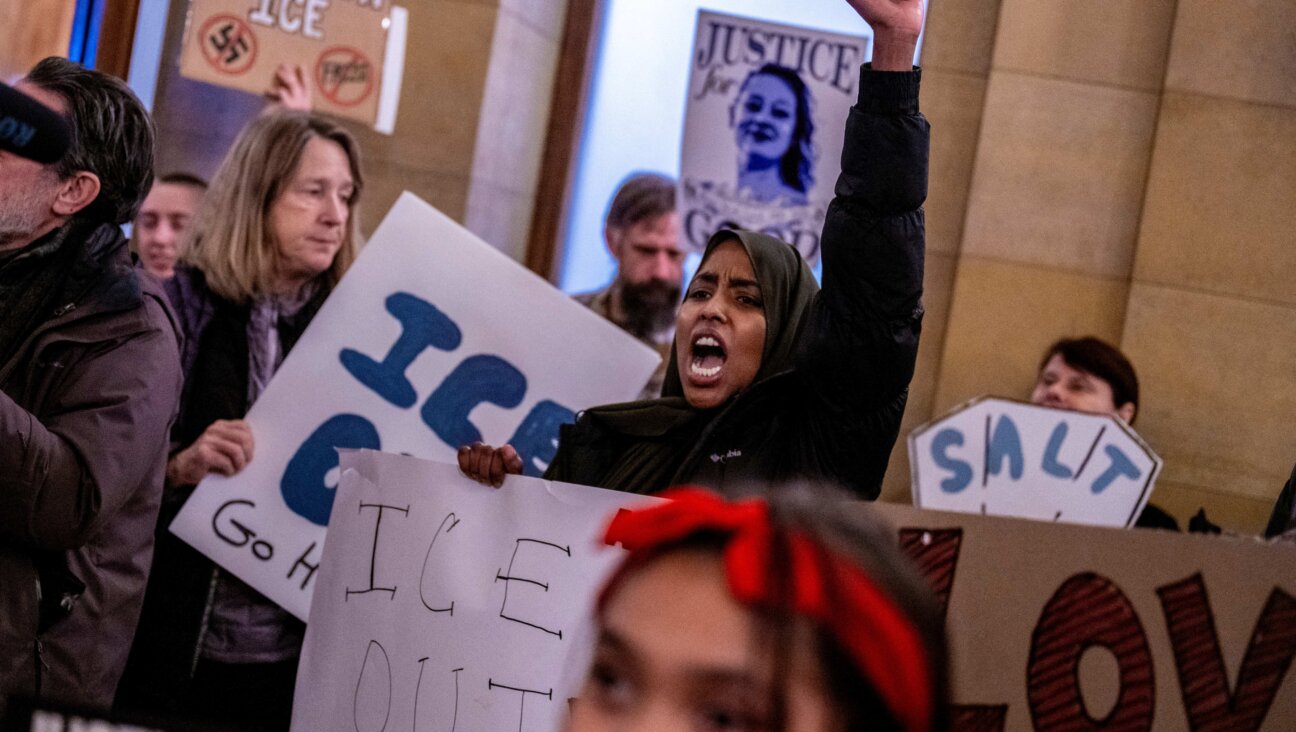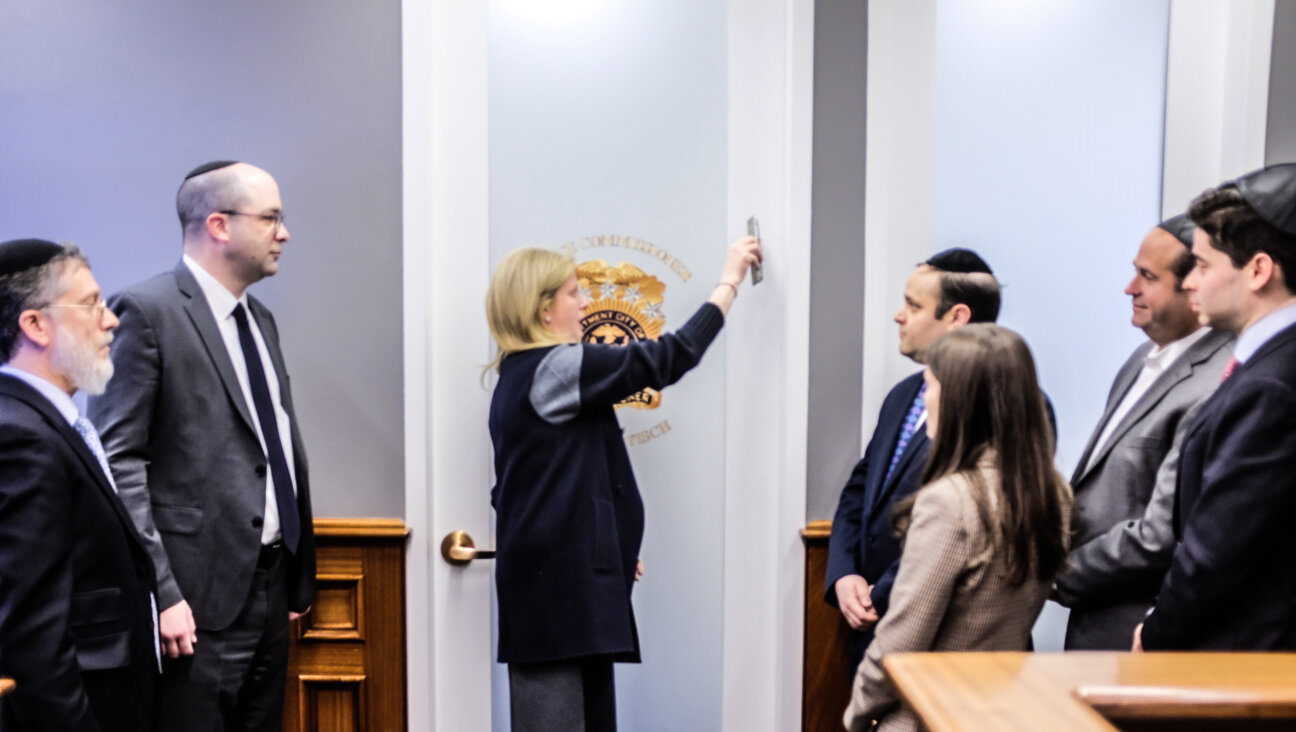Community’s ‘Other Fifth’ Needs Help
In a desolate room on the fifth floor of a rundown Soviet-bloc style apartment building in Kishinev, Moldova, resides Klara Kogan. She is 100 years old, has not left her room in five years and has no living relative on the face of the earth. Yet she holds in her room the key to Jewish existence over the last 2,000 years. I know this, because I recently visited Kogan in her room and saw that very secret key.
And what is this key to Jewish existence? It is Jewish mutual responsibility. It has enabled Jews, spread over the globe, to survive centuries of pogroms and wars, while other robust and solid empires like the Romans or Incas ceased to exist, despite their armies and apparent strength.
Consider this: Kogan’s lifeline is made of Jewish volunteers in Moldova, who are deployed by Jewish organizations working from Jerusalem, funded by dollars sent from New York, but collected through efforts of Jewish communities all over North America. It is an incredible global network of Jew-for-fellow-Jew that transcends continents and oceans in search of a needy Jew — to provide Kogan and others like her with a bowl of soup, a shirt, a roof, medicine and a warm bed.
This mutual responsibility performed miracles in the past century. It helped create the State of Israel, lifted and rescued Jews from the jaws of the devil and nourished the recovery of Jewish communities literally out of the ashes.
Yet Kogan, together with many thousands of Jews, is facing a looming danger: the fatigue of Jewish philanthropy. The gathering storm is more visible now than ever before.
Four-fifths — 80% — of Jewish people today live in Israel and America. Yet Israelis and American Jews are turning homeward, each focusing on their own growing concerns: Jewish continuity in North America, and security and poverty in Israel.
Furthermore, both communities are concerned about the strength of the other. Israelis — expressing concerns about assimilation and a resultant decline in political clout among American Jews — worry about the future of American Jewry. American Jews, it seems, harbor some fears about the future resilience of the Jewish state, especially after this summer’s war with Hezbollah.
The net result: less money, less help, less patience for the “other fifth” — Jewish communities scattered in more than 60 countries around the globe, from Havana to Budapest, Siberia to India.
Are we able to afford this luxury of turning inward into a self-centered, “our needs first” American Jewish agenda? A bird’s eye view of the rest of the Jewish world tells us a thundering “no” in response. By virtue of standing at the helm of the overseas arm of the American Jewish community, I am exposed to it daily. So bear with me while I zoom in on some alarming areas.
Argentina’s Jews are emerging out of communal and economic catastrophe equal to America’s 1929 financial collapse. The recovery is partially thanks to our supportive hand that was extended at a crucial moment. They still need our support in order to fully recover — but we tend to see them as yesterday’s story. In Poland, an eerie phenomenon exists: Jews who for generations were raised as Catholics are coming out of the woodwork and reclaiming their faith and culture. We know there are thousands more waiting to do so. Sixty years after their parents rode the trains to Auschwitz and left them to the mercy of good strangers, a divine justice is now happening as they return to Judaism. Without the support of American Jews, this miracle will not be completed.
Throughout the reunited Europe and the former Soviet Union, Jewish communities are emerging out of darkness and silence. Many were first decimated by the Nazis, and then culturally suffocated under Communism. They are gathering strength to stand up as Jews again, although some resemble a mere shadow of their glorious past. Yet they have the right — as well as the burning desire — to revitalize as Jews. We are there, helping them to perform this amazing cultural rebirth. Those communities were the cradle of our past, and they are now asking us to help them redefine their future. As the trend within American Jewry to turn inward continues, we risk turning our backs on them. If we don’t seize this historic opportunity, in the former Soviet Union alone, we will lose some 1 million unaffiliated Jews spread out across 11 time zones.
In Germany, hundreds of small, fledging Jewish communities have sprouted up in the past decade. They comprise ex-Soviet Jews who lack the cultural tools to create Jewish communal life. Can we ignore them? Their number is now 200,000 — larger than many of our communities here in America — but without our emergency cultural I.V., they will hemorrhage Jews into assimilation.
In Morocco and Tunisia, small islands of Jewish life exist amid a Muslim ocean. More than 1,000 children still attend Jewish day school but, as a small minority, retaining Jewish life has its challenges. In some other Muslim countries, life is far more complex. Suffice it to say that Jewish eyes turn up to us while Jewish lips recite the old verse: “Whence shall my help come?”
Finally, the age of terror, the monstrous reality of the 21st century, has turned every Jewish community worldwide into a target. Recent attacks in Casablanca, Istanbul and other locations are grim harbingers of our future. Every Jewish school, community center, office, synagogue, bookstore or kindergarten could be hit. Small communities outside America are unable to strengthen their defense without the combined help of American Jewish philanthropy and Israeli expertise. It is a race against time. Who will reach the targeted community first: the terrorist in his car bomb, or the angels of defense with sophisticated protection? We must remember this when we sit here, contemplating more cuts in our funds allocated for “the other fifth,” our Jewish brethren overseas.
Our overwhelming response this summer to the crisis in Israel showed how quickly and effectively we can come together and pool our resources. In a matter of days, United Jewish Communities and Jewish federations throughout North America raised some $300 million dollars for Israelis under siege.
What is required now is a coming together of our people, first in America and then around the world. We must not be satisfied until every Jew has his or her basic and spiritual needs met. The criteria of success should be that every Jew, no matter where he or she lives, should live at the same standard we wish for ourselves, our parents and our children.
For years, American Jews excelled in harnessing all their resources for the struggle to free Soviet Jews — the “Jews of Silence,” as Elie Wiesel called them. Now that we were successful and that struggle is behind us, we must respond to the cry for help from “the other fifth.”
If, as American Jews, we are truly worried about Jewish continuity, than I suggest we inject ourselves with a good shot of our own medicine, namely, the enduring Jewish principle: Kol Yisrael areivim zeh b’zeh — “all Jews are responsible for one another.” Let us not view this as a slogan but rather a way of life. The future of 13 million Jews worldwide depends on it.
Steve Schwager is the executive vice president of the American Jewish Joint Distribution Committee.
















